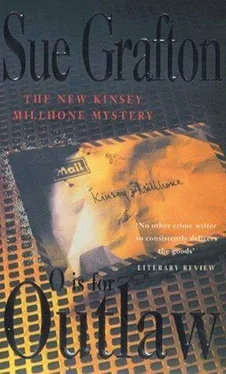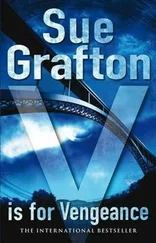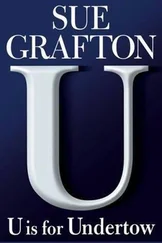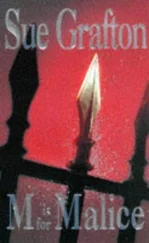It was also the era in which law enforcement began to change. In 1964, the Supreme Court had ruled, in the matter of Escobedo v. Illinois, that the refusal by the police to honor Escobedo's request to consult his lawyer during the course of an interrogation constituted a violation of the Sixth Amendment. Two years later, 1966, in Miranda v. Arizona, the Supreme Court came down again on the side of the plaintiff, citing a breach of Sixth Amendment rights. From that point on, the climate in law enforcement underwent a shift, and the image of Dirty Harry was replaced by at least the appearance of restraint.
Mickey chafed at the limitations set by policy and, on a broader level, at legal restrictions he felt interfered with his effectiveness. He was an oldfashioned cop. He identified with the crime victim. In his mind, theirs were the only claims that counted. Let the perpetrator fend for himself. He hated having to protect the guilty, and he had no patience for the so-called rights of those arrested. I sometimes suspected he'd formed his attitudes from the reams of pulp fiction he'd read growing up. Please understand that none of this was evident to me when we first met. I was not only infatuated with his attitude but wide-eyed with admiration at what I mistook for worldliness. I suspect in Mickey's view certain rules and regulations simply didn't apply to him. He operated outside the standards most other cops finally came to accept. Mickey was accustomed to getting his way, experienced in what he called "certain time-honored methods for persuading a suspect to make himself agreeable in the matter of inculpatory statements." Mickey usually said this in a tone that made everybody laugh.
Mickey was revered by his fellow officers and, until that March, his departmental run-ins were focused on a series of minor infractions. He was late with his reports and occasionally insubordinate, though he seemed to have an instinct for how far he could push. He'd been the subject of two citizens' complaints: once for offensive language and once for excessive use of force. In both incidents the department investigated and found in his favor. Still, it didn't look good. His was an odd mix of the offbeat and the conventional. In his personal life, he was scrupulously honest about his taxes, his bills, his personal debts. He was loyal to his friends and discreet with regard to others. He also honored his commitments, except (apparently) to me. He would never violate a confidence, never rat out a pal or a fellow officer. Among men, he was esteemed. With women, he was regarded with an admiration bordering on hero worship. I know because I did this myself, elevating his nonconformity to something praiseworthy instead of faintly dangerous.
Looking back on it, I can see that I didn't want to know the truth about him. I had graduated from the police academy in April of 1971 and was hired by the Santa Teresa Police Department as soon as I turned twenty-one in May. I'd met Mickey the previous November, and I was dazzled by the image he projected: seasoned, gruff, cynical, wise. Within months we fell in love, and by August we were married, all of this before either of us understood what the other was about. Once committed, I was determined to see him as the man I wanted him to be. I needed to believe. I saw him as an idol, so I accepted his version of events even when common sense suggested he was slanting the facts.
In the fall of 1971, after Mickey was reassigned to burglary and theft, he developed what was euphemistically referred to as a "personality conflict" with Con Dolan, who headed crimes against property. Lieutenant Dolan was an autocrat and a stickler for regulations, which caused the two of them to clash time and time again. Their differences put an end to Mickey's hopes for advancement.
Six months later, in the spring of 1977, Mickey resigned from the department to avoid yet another tangle with Internal Affairs. He was, at that time, under investigation for voluntary manslaughter after he'd been involved in a bar dispute. His altercation with a transient named Benny Quintero resulted in the man's death. This was March 17, St. Patrick's Day, and Mickey was off duty, drinking at the Honky-Tonk with a bunch of buddies, who supported his account. He claimed the man was drunk and abusive and exhibited threatening behavior. Mickey removed him bodily to the parking lot, where the two engaged in a brief shoving match. To hear Mickey tell it, he'd pushed the guy around some, but only in response to the drunk's attack. Witnesses swore he hadn't landed any blows. Benny Quintero left the scene, and that was the last anyone reported seeing him until his body was discovered the next day, beaten and bloody, dumped by the side of Highway 154. Internal Affairs launched an investigation, and Mickey's attorney, Mark Bethel, advised him to keep his mouth shut. Since Mickey was the prime suspect, facing the possibility of criminal charges, Bethel was doing what he could to cover his backside. IA can coerce testimony but is forbidden to share findings with the DA's office. There could be serious consequences all the same. Given the overarching need for honest officers, the department was determined to pursue the matter. Mickey resigned in order to avoid questioning. If he hadn't left when he did, he'd have been fired anyway for his refusal to respond.
The day Mickey turned in his badge, his weapon, and his radio, his fellow officers were incensed. Department regulations prohibited his superiors from making any public statement, and Mickey downplayed his departure, which made him look all the more heroic in the eyes of his comrades. The impression he gave was that, despite their treatment of him, his loyalty to the department overrode his right to defend himself against accusations completely contrived and unfair. So convincing was he that I believed him myself right up to the moment when he asked me to lie for him. A criminal investigation was initiated, which is where I came in. Apparently, there were four hours unaccounted for in Mickey's alibi for that night. He refused to say where he'd been or what he'd done between the time he left the Honky-Tonk and the time he arrived home. He was suspected of following the guy and finishing the job elsewhere, but Mickey denied the whole thing. He asked me to cover for him, and that's when I walked.
I left him April 1 and filed for divorce on the tenth of that month. Some weeks later, the findings from the coroner's exam revealed that Quintero, a Vietnam veteran, had suffered a service-related head injury. In combat, he'd been hit by sniper fire, and a stainless-steel plate now served where a portion of his skull had been blown away. The official cause of death was a slow hemorrhage in the depths of his brain. Any minor blow could have generated the fatal seepage. In addition, the toxicology report showed a blood alcohol level of.15 with traces of amphetamine, marijuana, and cocaine. There was no actual evidence that Mickey had encountered Benny after their initial scuffle in the parking lot. The DA declined to file charges, so Mickey was off the hook. By then, of course, the damage had been done. He'd been separated from the city and he was, soon afterward, permanently separated from me. In the intervening years, my disenchantment had begun to fade. While I didn't want to see him, I didn't wish him ill. The last I'd heard he was doing personal security, a once-dedicated cop demoted to working night shift in an imitation cop's uniform.
I read the letter again, wondering what I would have done if I'd received it back then. I felt a ripple of anxiety coursing through my frame. If this was true, I had indeed contributed to his ruin.
I opened the drawer and took out my address book, which opened as if by magic to the page where he was listed. I picked up the handset and punched in the number. The line rang twice, and then I was greeted with a big two-tone whistling and the usual canned message telling me the number in the 13 area code was no longer in service. If I felt I'd reached the recording in error, I could recheck the number and then dial it again. just to be certain, I redialed the number and heard the same message. I hung up, trying to decide if there were any other possibilities I should pursue.
Читать дальше












